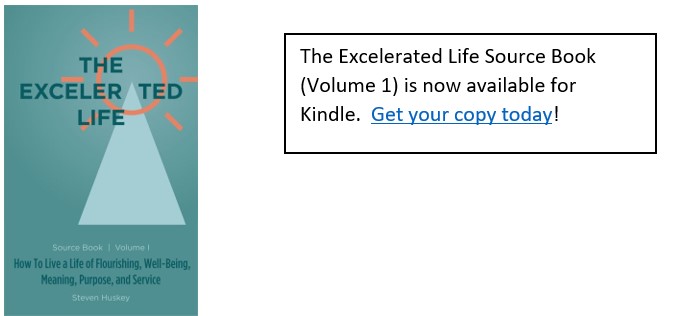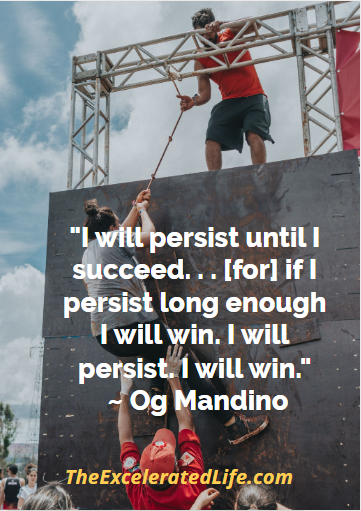The advantage of habits is that they help you do things without thinking about them. The disadvantage of habits is that they help you do things without thinking about them. This power works for you when you use it to create beneficial habits, to form habits for success.
Am I Lost? No, Just Confused.
Many years ago, my family and I lived in a beautiful house in the country. Unfortunately, it was a long drive to get to work (about 40 minutes), to get the kids to school (20 minutes for one, 30 or so for the other), or to shop for groceries, etc. (about 15 minutes). One Saturday morning, I headed into town to get gas and pick up a few items at the grocery store. This would normally take me about 10 to 15 minutes to get there. But I had several work issues on my mind and kinda went into autopilot. Thirty minutes later, I “woke up” to my surroundings and realized I was almost to Greenville and my office downtown. I had driven right past the gas station and grocery store and, without thinking, had headed to work. This is the power of habit.
Fortunately, the same power that can lead one to drive thirty minutes out of the way can also be harnessed to help us automate the positive behaviors we want to perform on a regular basis. That power can help us devise habits for success.
Habit Swap
The advantage of habits is that they help you do things without thinking about them. The disadvantage of habits is that they help you do things without thinking about them. This power works for you when you use it to create beneficial habits but works against you in that you can easily develop detrimental (we usually call these “bad”) habits.
The brain’s striatum helps create habits, but it doesn’t make value judgments. [Korb] It just does what you’ve done before, whatever that is, “good” or “bad”. And once it’s there, a habit never disappears from your striatum. [Korb]
Therefore, we can never completely free ourselves from our habits. In fact, experts estimate that up to 45% of our behaviors are habitual. [Wood] And while we can never clear a habit from our striatum, we can replace unhelpful habits with helpful ones. We can replace those so-called “bad” habits with habits for success.

Persist and Win!
“I will persist until I succeed. . . For now I know one of the greatest principles of success; if I persist long enough I will win.
“I will persist.
“I will win.” [Mandino]
Success can be achieved by taking simple, positive actions repeated over time. “Superlative performance is really a confluence of dozens of small skills or activities,” writes Angela Duckworth in Grit, “which have been carefully drilled into habit and then are fitted together in a synthesized whole.” On the flip side, failure comes as a result of a few simple errors in judgment repeated over time. [Olson]
Time and repetition are the common factors. To win, to succeed requires persistence. We must do those simple, positive actions again and again, whether we feel like it or not. Here’s where the right habits can help.
Creating Habits for Success
Creating habits takes determination and willpower. Once a habit forms, it is difficult – if not impossible – to break. Fortunately, there are strategies to make creating habits, or swapping a helpful habit for an unhelpful one, a bit easier. Here are some ideas to try.
Be curious about yourself, your likes and dislikes, the things you do and don’t do. As James Ryan recommends, periodically step back and ask “I wonder why?” and “I wonder if?”. [Ryan] Ask these questions about your habits. Why do you have them? Are they helping you in the long run? What would happen if you crafted a new, healthy habit? What would happen if you swapped out an unhealthy habit?
Examine your commitments. What do you say you are committed to and what are you actually committed to? “Our commitments allow us to move to a higher level of freedom,” writes David Brooks in The Second Mountain. There is of course freedom from constraint, which is our typical idea of freedom. But there is also “freedom to” – freedom to be your best and to do your best. “This is freedom as fullness of capacity, and it often involves restriction and restraint.” [Brooks] What must you give up, or change, or do differently to upgrade your commitments?
Examine the people you surround yourself with or that you hang out with. The people in your circle greatly influence the choices you make, even if you don’t realize it. As Jim Rohn famously said, “You are the average of the 5 people you spend the most time with” Research shows that the reach is even further than that. [Burkus] The influence of your social circle goes past your friends to your friends’ friends and to their friends. We are strongly influenced by those around us, so it behooves you to choose your friends wisely because they will affect the habits you develop.
A Success Formula
“It all comes down to a philosophical phrase: the things that are easy to do are also easy not to do. That’s the difference between success and failure, between daydreams and ambitions.” [Rohn]
I know I say this over and over, but I do that because (1) it’s true and (2) you and I need to learn this and make it a part of our operating system. It is Jim Rohn’s “two easies”. The things that move us forward are easy to do. They are also easy not to do. And we don’t notice much difference in the early days. It’s only after we’ve done or failed to do a thing over days, weeks, months, and even years, that we can celebrate: “Yay! Look what I did!” Or we lament and curse our “luck”: “Why do these things happen to me?” (Funny, we rarely say, “Oh, no! Look what I’ve done to myself!” which is closer to the truth.)

This is one of the important functions of developing good habits. Sure, we have to buckle down to be sure we do the “easy to do”s in the beginning, but through habit they eventually become automatic. If we choose to make things so easy to do that we would be embarrassed if we didn’t do them (a la the Tiny Habits and Mini Habits way), then actually do those things enough to make them habitual, it eventually takes the doing or not doing out of our hands.
Through habits, we can tap into Jim Rohn’s formula for success. Do not neglect to do the easy things you could do. That’s the key. Find something easy you can do that leads to your goal, and do not neglect to do it. [Rohn]
Actions
Are you ready to start crafting your habits for success? Let’s start with these steps from James Clear’s Habit Model:
- Cue = prompt
- Craving = motivation
- Response = ability
- Reward = result of performing the behavior
[Clear]
Cue: What external prompt will remind you to initiate your new default behavior? Remember, if you can tie this cue to an existing habit, you are more likely to repeat it.
Craving/motivation: Are you motivated to add the new default setting? Make a list of the expected benefits of adopting your new default. You selected this as a desired new behavior, so if your motivation is low, ask yourself if this is really an important change for you.
Response/ability: Make the new behavior as easy as you can. You can increase the difficulty over time but start with a tiny, tiny improvement.
Reward: Be sure there is a reward built into performing the behavior. Congratulate yourself when you do the new behavior and feel good about the improvement you are making.
As you go, keep in mind that repetition is key. How long it takes a behavior to become automatic depends on the difficulty of the behavior and your ability to perform the habit every time you are cued.
You may need to schedule your new habit. If it is a behavior that could be done at any time, select a particular time you’ll do it. Otherwise, it’s easy to “forget”. Better yet, do it at the same time each day. This is scheduling on steroids.
Set a reminder. Along with scheduling, this helps you remember to perform the behavior each time. If your new habit lends itself to the “habit stacking” technique, try tying the new habit to an existing habit.
Reward each victory. See “reward” above – if you aren’t getting some kind of reward for your initial efforts, you won’t get the habit to start operating on its own, i.e., it won’t become a habit.
Automate Success
Can we really automate success? I believe we can definitely automate the behaviors that lead to success (however you define it), once we identify what they are.
If we think of culture as the customs and beliefs and achievements of our place of business, or our family, or our society, we can see how habits are an important way of influencing that culture. Clayton M. Christensen writes in How Will You Measure Your Life: “This is what is so powerful about culture. It’s like an autopilot. What is critical to understand is that for it to be an effective force, you have to properly program the autopilot.” [Christensen]
And as we’ve seen in this discussion, an easy way to program your autopilot is to select behaviors that lead to your success, then make them into habits. That’s how we persist until we succeed. We will persist. We will win. And that’s how we embrace our Excelerated Life™!
What unhelpful habit could you replace with a helpful one?
Share your ideas by leaving a post below.
Excelerated Habits™ — automating your best behaviors — is one step in creating your Excelerated Life™, a life of flourishing and well-being, and a life of meaning, purpose, and service.
Read more about the Excelerated Life™.
Resources:
Brooks, David. The Second Mountain: The Quest for a Moral Life. New York: Random House, LLC, 2019.
Burkus, David. “You’re NOT The Average Of The Five People You Surround Yourself With.” Mission.org. A Medium Corporation, May 23, 2018. Web. Jan 8, 2019. https://medium.com/the-mission/youre-not-the-average-of-the-five-people-you-surround-yourself-with-f21b817f6e69
Christensen, Clayton M. How Will You Measure Your Life? New York: HarperCollins Publishers Inc., 2012.
Clear, James. Atomic Habits: Tiny Changes, Remarkable Results. New York: Avery, an imprint of Penguin Random House LLC, 2018.
Duckworth, Angela. Grit: The Power Of Passion And Perseverance. New York: Scribner, an Imprint of Simon & Schuster, 2016.
Korb, PhD, Alex. The Upward Spiral: Using Neuroscience To Reverse The Course Of Depression, One Small Change At A Time. Oakland, CA: New Harbinger Publications, Ind., 2015.
Olson, Jeff. The Slight Edge. Austin, TX: Greenleaf Book Group Press, 2005-2013.
Mandino, Og. The Greatest Secret in the World. New York: Bantam Books, 1978.
Rohn, Jim. Leading an Inspired Life. Niles, IL: Nightingale-Conant Corporation, 1997.
Ryan, James E. Wait, What? And Life’s Other Essential Questions. New York: HarperCollins Publishers Inc., 2017.
Wood, Wendy. Good Habits, Bad Habits. New York: Farrar, Straus and Giroux, 2019.


